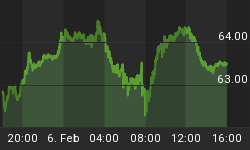Financial Repression Lemmings
Low and negative rates have not done a damn thing for the Eurozone, Switzerland, Japan, or any other country that's implemented them. Nonetheless, Fed lemmings want to Test How Banks Would Handle Negative Rates.
In its annual stress test for 2016, the Fed said it will assess the resilience of big banks to a number of possible situations, including one where the rate on the three-month U.S. Treasury bill stays below zero for a prolonged period.
Three-month bill rates have slipped slightly below zero several times in recent years, including in September after the Fed delayed rate liftoff amid global financial market turmoil, touching a low of minus 0.05 percent on Oct. 2.
New York Fed President William Dudley said last month that policy makers were "not thinking at all seriously of moving to negative interest rates.
"But I suppose if the economy were to unexpectedly weaken dramatically, and we decided that we needed to use a full array of monetary policy tools to provide stimulus, it's something that we would contemplate as a potential action," he said on Jan. 15.
Fed Vice Chairman Stanley Fischer said Monday that foreign central banks that had resorted to negative interest rates to stimulate their economies had been more successful than he anticipated.
"It's working more than I can say I expected in 2012," he told the Council on Foreign Relations in New York. "Everybody is looking at how this works," he added.
Negative Interest Rate Club
- Eurozone: European Central Bank (ECB)
- Switzerland: Swiss National Bank (SNB)
- Sweden: Swedish National Bank (Riksbank)
- Denmark: Danish National Bank (Nationalbanken)
- Japan: Bank of Japan (BoJ)
Right Over the Cliff

In the inane attempt to get consumers to spend more money and to stave off threats of consumer price deflation, central banks keep punishing the prudent as well as those on fixed incomes.
Low interest rates foster economic bubbles. And it's asset deflation not CPI deflation that central banks ought to fear. Even the BIS agrees with that statement. For discussion please see Historical Perspective on CPI Deflations: How Damaging are They?
Economic Challenge to Keynesians
Of all the widely believed but patently false economic beliefs is the absurd notion that falling consumer prices are bad for the economy and something must be done about them.
I have commented on this many times and have been vindicated not only by sound economic theory but also by actual historical examples.
My January 20, post Deflation Bonanza! (And the Fool's Mission to Stop It) has a good synopsis.
And my Challenge to Keynesians "Prove Rising Prices Provide an Overall Economic Benefit" has gone unanswered.
There is no answer because history and logic both show that concerns over consumer price deflation are seriously misplaced.
In their attempts to fight routine consumer price deflation, central bankers create very destructive asset bubbles that eventually collapse, setting off what they should fear - asset bubble deflations following a buildup of bank credit on inflated assets.















